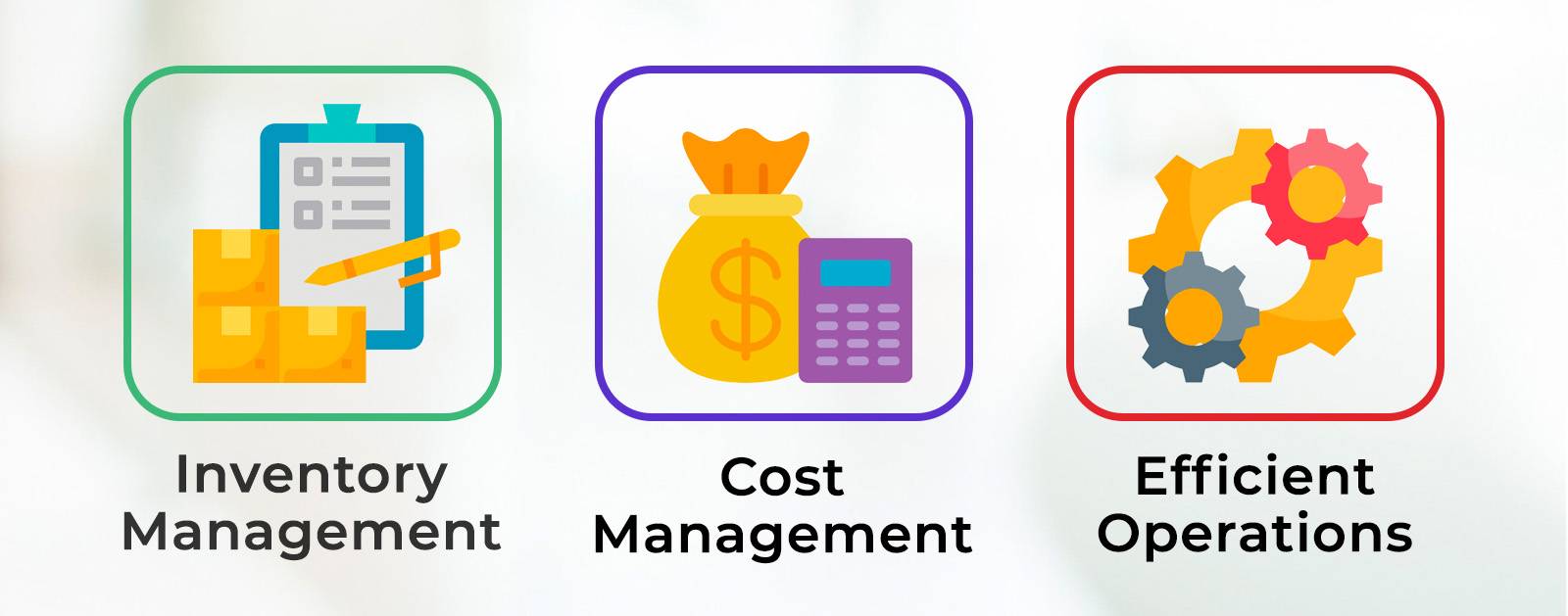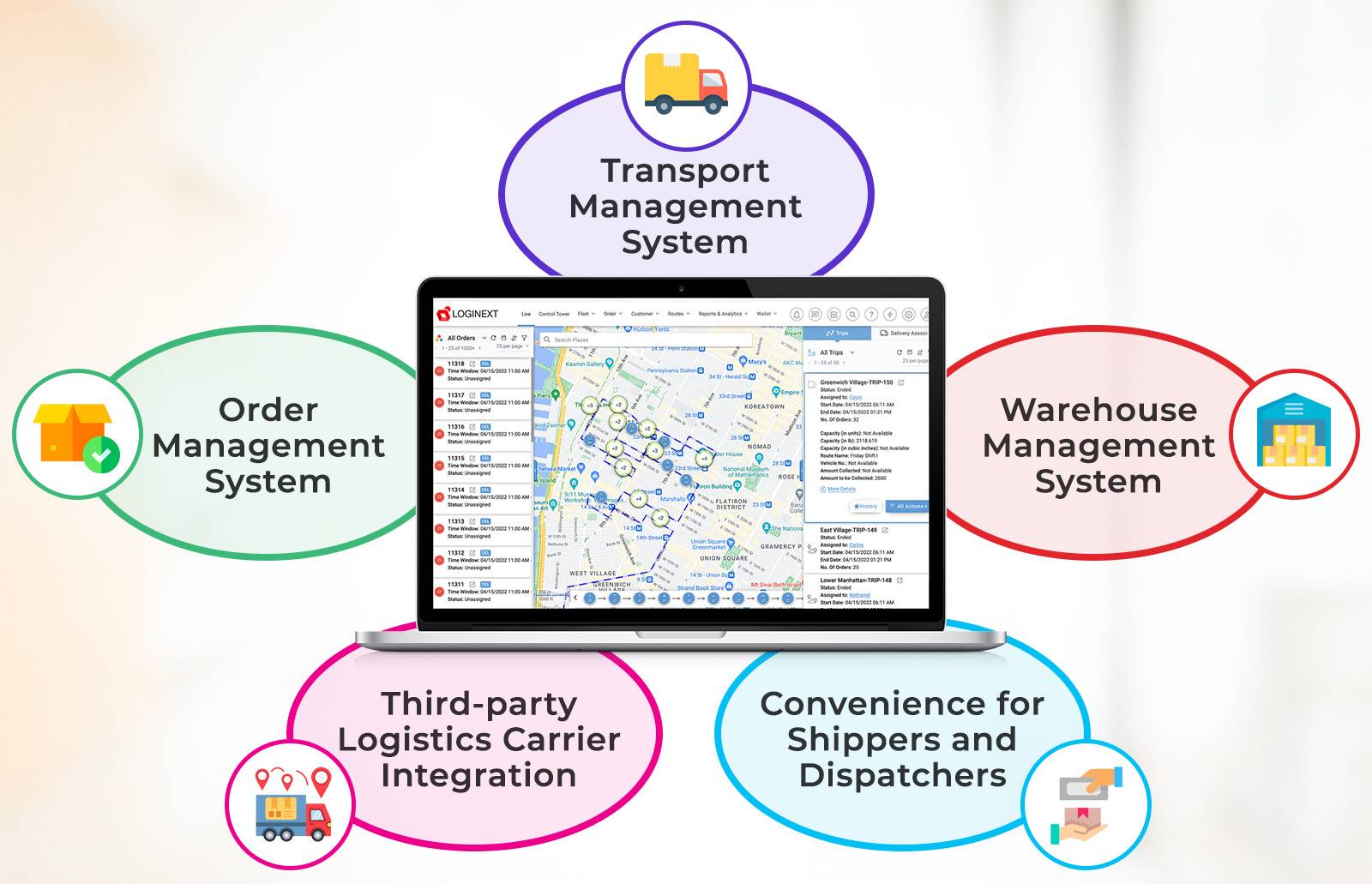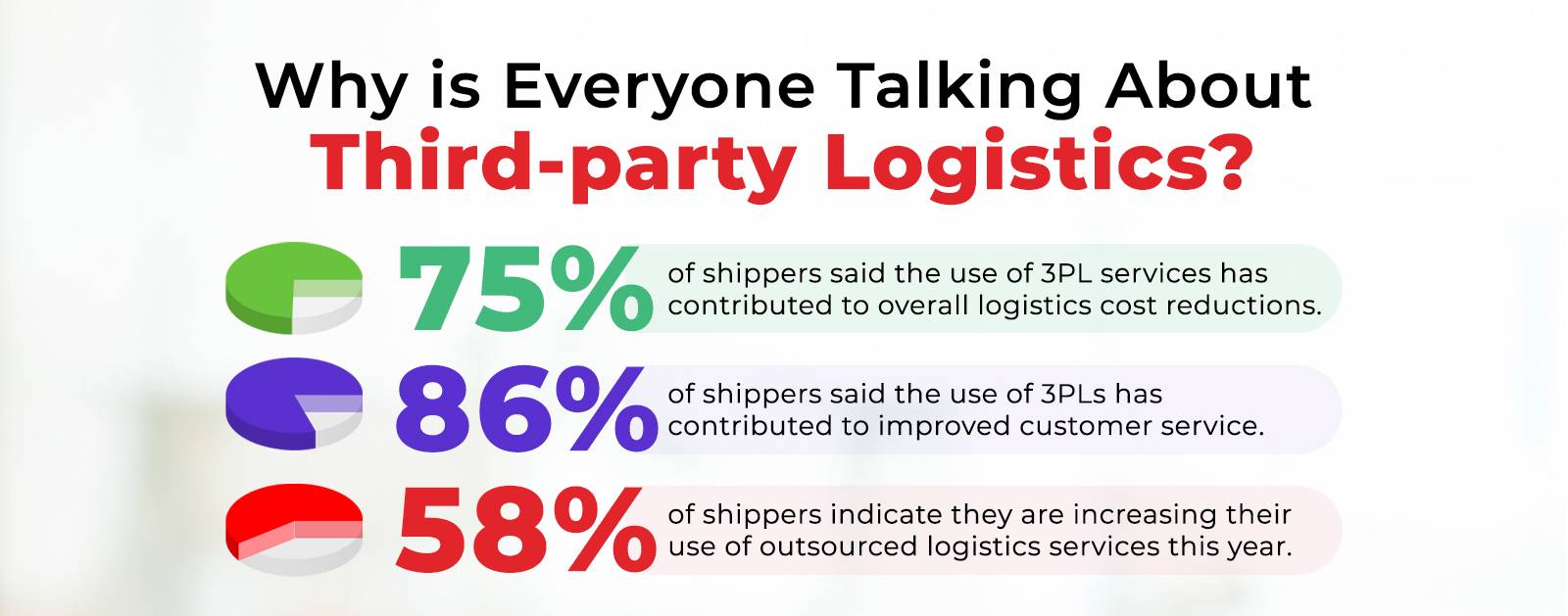
How can eCommerce businesses benefit from Logistics Management software?
The introduction of eCommerce in the 2000s felt like an alien concept to many but the pandemic made people realize the wonders of online shopping on a global scale. The world of eCommerce has seen a growth trajectory of 13-17% during the pandemic and is sure to stay with continuing shopping trends. In today’s world, people are fond of shopping online and have a comfortable experience with deliveries on their doorstep. However, it isn’t tech alone that helps customers receive their products conveniently. Logistics plays a vital role in the overall eCommerce ecosystem.
“The line between disorder and order lies in logistics” – Sun Tzu
The retail market which was less than $1 trillion in 2011, grew to about $ 9.00 trillion in 2021. A major volume of 22% of it was online purchases from the total retail sales. This is further expected to be over 50% by 2031. This significant growth in the world of eCommerce could not have been possible if businesses hadn’t adopted a major differentiator. What’s that?
A full-fledged Logistics Management Software for smooth operations because there is a lot happening at the backend of the ultimate goal- Customer satisfaction!
Let’s dig deep and understand how having reliable logistics management software (LMS) can be a great advantage for an eCommerce business.
What is a Logistics Management Software?
With countless orders coming in every day, technological advancements are essential for order fulfillment. Logistics management solutions is the pillar of good customer service as it helps in the end-to-end control of planning, controlling, and distribution of the supply chain for freight, fulfillment, inventory, and everything in between. With the power of automation, focusing on seamless deliveries with adequate storage capacity becomes easy in logistics. While a lot goes on in between as the customer places an order and the item is dispatched from the warehouse and delivered, the logistics management software streamlines every step of it and also makes operations convenient in case of rejections items or unsuccessful deliveries, etc. One can choose to have in-house or self-managed drivers or choose third-party logistics (3 PL) carriers depending on the needs and demands. The major components of Logistics Management include warehouse management, transportation management, and last-mile operations.
Wondering how to streamline logistics for your eCommerce business?
Keep reading!
Why is Supply Chain Management important for eCommerce?

Prioritizing supply chain management is the first step towards streamlining end-to-end operations in eCommerce logistics. It helps in having a clear understanding while serving customers along with utilizing technology efficiently. Take a look at the 3 reasons why your eCommerce business needs to have a robust supply chain management system:
Inventory Management: Inventory control is one of the major factors that any eCommerce business needs to prioritize. As some products might be in demand due to various reasons like festive seasons or discounts, businesses need to ensure they have enough products to fulfill the customer demand without overstocking or falling short of them. Achieving this balance can’t be done with manual calculations and efforts alone as meeting customer demand and avoiding holding excess inventory needs to be planned with various tools like logistics management software and technology.
Cost Management: While taking care of timely deliveries and processing multiple orders every hour, cost efficiency is one of the major factors that a business needs to manage. Supply chain management can help eCommerce firms in cutting down various costs like shipping, manufacturing, and raw materials. Streamlining the supply chains for every step helps in ultimately reducing consumer prices.
Efficient Operations: A resilient supply chain management is the biggest contributor to improving efficiency for any eCommerce company. Various activities like quality boost, time management, minimizing waste, and streamlining production and delivery process can only be possible if operations are taken care by delivery software. Organizations that focus on operations can also quickly respond to changes in the demand of customers to boost customer happiness and loyalty.
Major Challenges Faced in the Modern eCommerce World in Terms of Logistics
While the eCommerce giant Amazon has set the trend of fastest deliveries along with fulfilling orders on the same day as well, customers across the world expect similar sort of services from any eCommerce provider. While this can’t be possible for every business, here are the major challenges faced in terms of logistics.
Same-day Delivery- As customers are as interested in faster deliveries as much as good quality products, eCommerce businesses always need to be on their toes to process every order soon else it might cost them a customer. With the number of operations taking place behind processing a single order, same-day delivery can be a challenge.
Identifying a Reliable Logistics Partner- With an increasing number of orders for growing businesses, it becomes a costly affair to manage in-house logistics with limited drivers. Identifying a reliable logistics partner with affordable rates and faster services becomes a challenge at times.
End-to-End Visibility of Orders- The Millenial and Gen-Z crowd isn’t patient when it comes to their online deliveries. Offering a crystal clear view about the movement of their orders is what eCommerce companies struggle with as the deliveries might be taking place through multiple hubs and milestones. However, lack of clarity with the order status can cost valuable customers to any business.
Lack of Understanding about the latest Technologies used for Logistics- If you’re not well-versed with the latest technology updates and trends, choosing a suitable partner can be a tricky one. Having expert advice is what helps in such scenarios to make the most of these technological advancements for your eCommerce business.
Finding a Suitable Logistics Management Software- With a plethora of options available in the market with various features, identifying the ones that are suitable for your eCommerce business needs enough brainstorming.
Growth of eCommerce in the post-Covid world:
From an increase in demand to the safety concerns of customers, the pandemic has given the eCommerce industry multiple challenges as well as ways to flourish in the world. Consumers in developing nations embraced online shopping the most during the pandemic which continues even today. Even though many people were already shopping online, home delivery of products became more of a necessity than a comfort since the pandemic. This has given rise to multiple small and medium-sized businesses growing in the world of eCommerce.

Importance of Logistics Management Software for the eCommerce industry:
The entire journey of a customer placing any order to them receiving the same at their doorstep involves lots of processes to focus on with the help of technology. With a suitable logistics management system, eCommerce businesses can streamline various operations conveniently along with getting a bird’s eye view of all the deliveries, and keep their customers informed at the same time. Here are some of the major offerings of Logistics management software for eCommerce businesses:

Order Management System: Right from order creation to routing and tracking once the order leaves the dispatch center, having an Order Management System(OMS) can automate everything in a simplified way to reduce manual intervention. Having an OMS majorly helps in building an omnichannel approach.
Transport Management System: Tackling the complexities in routing deliveries for eCommerce businesses can be a cumbersome task as they are also expected to be delivered in a quick span of time. Having a Transport Management System(TMS) can help in managing costs while identifying the best routes primarily.
Warehouse Management System: Considering state-of-art management for eCommerce businesses, a warehouse management system is a must-have when considering a logistics management solution. It helps in seamless order fulfillment with efficiency and saving money that would otherwise have been used for pick-and-pack options.
Convenience for Shippers and Dispatchers: As the logistics management software gives end-to-end visibility of orders and operations, it becomes highly convenient for shippers as well as dispatchers to get a clear picture, save costs in multiple ways, save time due to automated processes, and enjoy a plethora of options to experiment with while considering customer experience as a priority.
Third-party Logistics Carrier Integration: Various logistics management solutions usually offer in-built third-party logistics carrier integration where one can integrate with a carrier of their choice depending on factors like costs and type of service provided. The eCommerce businesses can easily choose a suitable carrier from the available list and start shipping seamlessly. The top benefits of using a third-party logistics carrier include:
– Cost Efficiency
– Optimized Shipping
– Experienced Professionals
– Flexibility

Here’s why you should choose LogiNext as your Logistics Management Software for your eCommerce business:
We, at LogiNext, not only prioritize streamlined operations but also strive hard to offer better end-customer experience. Thanks to AI-enabled technology and insights from our team full of enthusiastic industry experts.
– Hassle-free integration with Third Party Logistics Carriers
– Auto-Allocation for faster deliveries
– Facility to Utilize and Monitor In-house Drivers Conveniently
– Single View of Multiple Deliveries at Once
– Seamless Transport Management System
– Time & Cost Saving with Automated Routing
– Scalability & Flexibility with AI-enabled technology
– Improved Customer Satisfaction with Faster Deliveries
No matter if you are a brick & mortar retailer, new in the eCommerce era or just exploring ways to establish customer loyalty online, LogiNext can help you in numerous ways with end-to-end logistics operations. Ask yourself these questions before you pick a suitable logistics management software for your business.
– Is my eCommerce business and team fit to manage logistics internally?
– Do I have the tools and resources I need to meet customer demands?
– Will I be able to handle the order surge with in-house drivers?
Once you’ve answered all these questions, you’ll know if a logistics software solution can help your business or not. Also, if you’ve made up your mind to choose LogiNext as your logistics partner, just hit the button below and our team of experts will be there to help you deliver a satisfactory customer experience.
126







@LogiNext